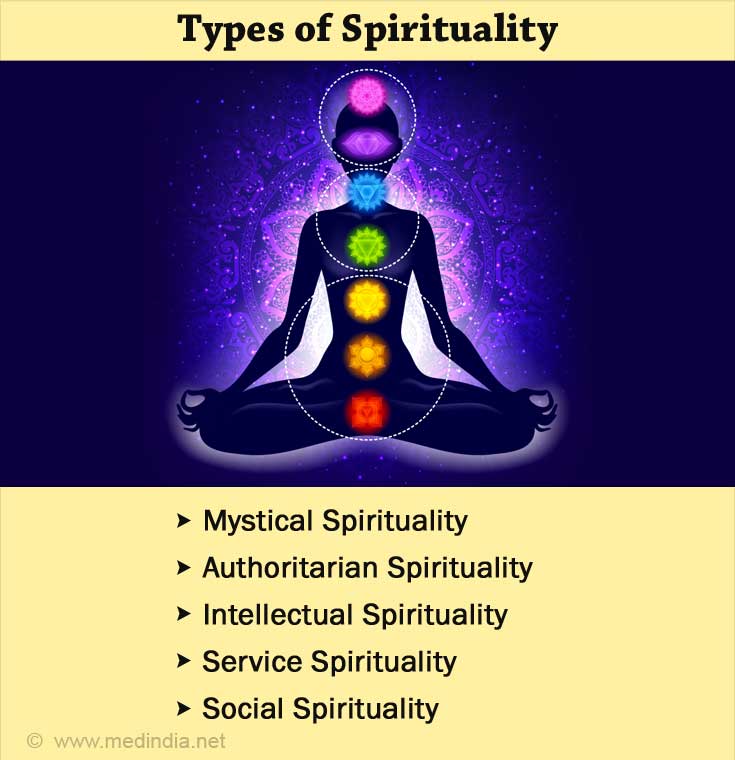- Spirituality and mental health - (https://www.ncbi.nlm.nih.gov/pmc/articles/PMC2755140/)
- The impact of spirituality on mental health - (https://www.mentalhealth.org.uk/sites/default/files/impact-spirituality.pdf)
- Spirituality Religion and mental illness - (https://www.rethink.org/advice-and-information/living-with-mental-illness/wellbeing-physical-health/spirituality-religion-and-mental-illness/)
- About Spirituality and mental health - (https://www.rcpsych.ac.uk/mental-health/treatments-and-wellbeing/spirituality-and-mental-health)
- Spirituality and Mental Health Program - (https://www.mcleanhospital.org/treatment/smhp)
- Religion, spirituality and mental health: results from a national study of English households - (https://www.cambridge.org/core/journals/the-british-journal-of-psychiatry/article/religion-spirituality-and-mental-health-results-from-a-national-study-of-english-households/434CFF0E75402B578ED0149600BF55A4)
- Journal Of Spirituality In Mental Health - (https://azimpremjifoundation.org/content/journal-spirituality-mental-health)
- Integrating spirituality and mental health: Perspectives of adults receiving public mental health services in California. - (https://psycnet.apa.org/record/2019-15316-001)
- Spirituality, religion and health: evidence and research directions - (https://www.mja.com.au/journal/2007/186/10/spirituality-religion-and-health-evidence-and-research-directions)
Health is a combined well-being state of the body, mind, and spirit. The term “holistic” emphasis on the three aspects of a person. Many physical and mental health professionals do consider the body, mind, and spirit to be inseparably linked.
Spiritual health refers to the relationship with the Sacred, the Divine, the Holy, the transcendent being, or reality many of us recognize as God.
What is Spirituality?
Spirituality is the recognition of a feeling that there is something greater than oneself, something more than a sensory experience of being human, implying the greater whole of which we are part that is divine.
Spirituality is above understanding the mundane existence at the level of the biological needs driven by selfishness and aggression. Spirituality explores universal themes such as love, compassion, life after death, wisdom, and truth.
Signs of Spirituality
- Observing the Patterns: This awakens about noticing who, what and where.
- Feeling a Sense of Connection with a sense of humanity.
- Letting Go of Attachment: Not letting attachments define one.
- Finding Inner Peace: Inner peace magnifies positive emotions and acts as a wet blanket over negative ones.
- Increasing Intuition: All the energy does spiritually awaken human beings.
- Having Synchronicity: The feeling that the Universe is conspiring to make something happen.
- Increasing Compassion: Compassion is an action inspired by empathy. It means “to suffer with.”
- Removing the Fear of Death: Focus on living in the present and stop worrying so much about the future or regretting the past.
- Increasing One’s Authenticity: With this awakening comes confidence and a deep sense of self-worth.
- Flourishing makes awakened people have a level of well-being consistent. There is a mind-body connection translating towards being happier and healthier.
Difference between Religion and Spirituality
Religion signifies a set form of beliefs and practices shared and practiced by a community or group.
Spirituality signifies an individual practice that has a sense of peace and purpose. It relates to developing one’s beliefs around the meaning of life and connection with others which is without any set spiritual values.
Types of Spirituality

- Mystical Spirituality indicates the intuitional part of the soul which can be brought into a greater unity.
- Authoritarian Spirituality is about believing in a hierarchical structure of authority. This type of spirituality is often associated with a set of religious beliefs.
- Intellectual Spirituality: The core belief is about knowledge. Any knowledge that helps people improve their spirituality forms intellectual spirituality.
- Service Spirituality: People do experience spiritual peace when they happen to serve others. The core helps others without having to expect anything in return.
- Social Spirituality: Religious groups do experience social spirituality. This is achieved with any form of a group that can be exercising, nature-related events, meditation, yoga etc.
It is interesting to note that we experience physical and emotional wounds just as we experience spiritual wounds.
Spiritual wounding occurs when someone’s essence, that is one’s very spirit experiences intense denigration, humiliation, shame, or complete disregard for one’s personhood and well-being. This sort of wounding usually occurs regardless of one’s faith or religion.
For that matter, when someone experiences a physical or emotional violence and abuse, there is a high likelihood that there are present spiritual wounds in the deepest part of her/his being.
How Can Someone Experience Spiritual Healing Then?
Many people seek counseling from their pastor or priest or imam (Muslim religious leader) or clergy-person, etc. Some do discuss their spiritual wounding in therapy with a psychotherapist. Others often seek spiritual counselors who are called the spiritual directors, to work in conjunction with the psychotherapist to address the arising and deep-rooted spiritual concerns.
Healthcare providers are trained to care for physical health similarly, spiritual directors are trained to care for spiritual health.
Spiritual directors are professionals with the knowledge and experience in the ascertained areas of spiritual formation, development, and offer guidance. The spiritual director moves further to identify the early understandings of God. Then it is often seen how those understandings may or may not have changed through the years.
How does Spirituality affect Mental Health?
Spiritual health can be misunderstood, overlooked, or considered unimportant to someone’s overall health and even well-being in due course of time. However, it is all about addressing one’s spiritual health which is the key component to her/his physical and mental health.
As known, it is difficult to force God to be under a microscope just as it is for the air God breathes in through the space of spirituality. This makes us want to explore psycho-spirituality for spiritual healing.
The term psycho-spirituality implies the interdependence of the psychological and the spiritual processes leading towards health, pathology, and growth. A positive change in any area does have a profound impact in other areas because of the interconnectedness of the person, as it seems highly unlikely to be otherwise.
Contributions of Spirituality toward the Counselling Process
Spirituality enhances awareness towards God, improved connectedness towards love, hopeful openness towards the presence of God, and transcendent meaningfulness. This leads to spiritual development through which one must enhance the process of counseling and psychotherapy, thereby impacting each component of the person helpfully.

The spiritual direction and psycho-therapy address the potential that is great for a deep blessing and a greater wholeness for those who freely chooses therapy that does aim for the psychological and the spiritual growth as well as the reduction leading towards any psychological distress.
The pitfalls of integrating spiritual direction into psychotherapy are numerous and can turn to be devastating as well. Counseling that has the most concern can be addressed through humility, which leads to further education (intentionally indicating developing dual competencies in psychotherapy and spiritual formation practices).
It is all about respect (not imposing beliefs or values on the client) and the meticulous use of informed consent that makes a difference (by providing sufficient information to the client concerning the therapist’s approach towards psychotherapy and the role given towards spirituality practices).
The therapist can move towards increasing the use of spiritual practices of the client to facilitate the attention towards the spiritual awareness, moving towards the deep longings for the transcendence, and finally, openness leading towards the connectivity known to God.
Exploring the impact of psychological functioning on spiritual well-being is highly beneficial for the client. Spiritual interventions do increase the spiritual awareness plus connectivity which flows from the spiritually connected psychotherapist.
Way Forward
The difference from psychotherapy does lie in the way the spiritual guide responds. The spiritual guide essays the role of the “coach”, by being actively engaged in the recommendation of the readings and by using techniques to enhance one’s spiritual life.
The sacred texts of the one seeking guidance are often used and readings from the same are often recommended for reflection followed by discussion. In such a relationship, the deeply spiritual part of the seeker’s life becomes the focus of the discussions. It is not an adjunctive, as it might be in a foreseen psychotherapeutic relationship.
Bottom Line
Spiritual direction is beneficial to someone who is in psychotherapy and wants to give a more specific focus towards the spiritual side. Those looking towards recapturing an enriching childhood relationship with the Divine benefit from the addition of spiritual guidance in all their coming up sessions. The key point has been what has once certainly sustained and something which brought great joy could have been lost and is often re-awakened with nurturing and more so spiritual guidance.
This is certainly the most observed case for anyone who has a deep and dedicated relationship with the Divine and wants to deepen it and enrich it with more expert guidance.








